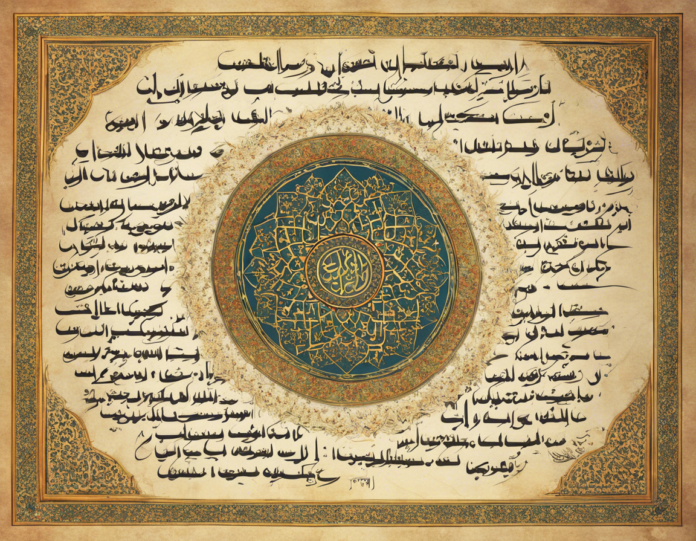The story of the elephant, as mentioned in Surah Al-Fil (Chapter 105) of the Quran, holds significant historical and spiritual importance. The chapter derives its name from the mention of the event where Abraha, the Abyssinian ruler, marched towards the Kaaba with the intention of destroying it using an army that included elephants. The chapter serves as a reminder of the power and protection of Allah, regardless of the seemingly insurmountable obstacles that may arise.
The Historical Context
The event of the elephant took place in the year of the Prophet Muhammad’s birth, known as the Year of the Elephant. Abraha, the governor of Yemen appointed by the Abyssinian king, launched an expedition to destroy the Kaaba in Mecca. The Kaaba was revered as the holiest site for the Arabs even before the advent of Islam. Abraha, in his attempt to divert the pilgrimage route to the newly built cathedral in Yemen, aimed to establish the cathedral as the central place of worship.
The Divine Intervention
As Abraha’s army advanced towards Mecca with the elephants, including the lead elephant named Mahmud, Allah sent birds in flocks carrying small stones in their beaks and claws. These birds pelted Abraha’s army with these stones, causing destruction and chaos. The elephants, despite their size and strength, became powerless against this divine intervention. The army faced a humiliating defeat, and Abraha himself was afflicted with a severe disease that led to his death upon returning to Yemen.
The Lessons from Surah Al-Fil
-
Power and Protection of Allah: The incident of the elephant illustrates the ultimate power of Allah and His ability to protect His sacred house. It serves as a reminder that no force on earth can prevail against the will of Allah.
-
Faith and Trust: The event reinforces the importance of having faith and trust in Allah, even in the face of seemingly insurmountable challenges. The believers at that time had no army or resources to defend the Kaaba, yet Allah granted them victory through His divine intervention.
-
Historical Significance: The Year of the Elephant marks a significant event in the history of the Arabian Peninsula, as it preceded the birth of the Prophet Muhammad by a few years. It signifies the protection of the sacred sanctuary and sets the stage for the prophethood of Muhammad.
Insights from Surah Al-Fil
- The chapter emphasizes the concept of divine retribution for those who transgress the limits set by Allah.
- It highlights the vulnerability of even the mightiest of armies in the face of divine intervention.
- The story of the elephant showcases the mercy of Allah towards His believers and His ability to turn the tables against the oppressors.
Prophet Muhammad and the Year of the Elephant
The Year of the Elephant is closely linked to the birth of the Prophet Muhammad, as it occurred approximately five years before his prophethood. The failed expedition of Abraha and the miraculous protection of the Kaaba served as signs of the impending arrival of the final messenger of Allah. The incident brought attention to the sacredness of the Kaaba and the eventual cleansing of Arabia from idolatry under the guidance of Prophet Muhammad.
Frequently Asked Questions (FAQs) about the Story of the Elephant
-
Why did Abraha want to destroy the Kaaba?
Abraha, appointed by the Abyssinian king, aimed to divert the pilgrimage route from Mecca to Yemen, where he had built a grand cathedral to establish it as the central place of worship. -
How did Allah protect the Kaaba from Abraha’s army?
Allah sent flocks of birds carrying stones in their beaks and claws, which they hurled at Abraha’s army. This divine intervention caused chaos and destruction, leading to the defeat of the army. -
What was the significance of using elephants in the expedition?
Elephants were considered formidable creatures in battle during that time. The inclusion of elephants in Abraha’s army was meant to strike fear into the hearts of the people of Mecca. -
What was the aftermath of the incident of the elephant?
The defeat of Abraha’s army and his subsequent death due to a severe disease upon returning to Yemen served as a testament to the power of Allah and the sanctity of the Kaaba. -
How does the story of the elephant resonate with believers today?
The story of the elephant serves as a reminder of the power of faith, the protection of Allah, and the eventual triumph of truth over falsehood. It inspires believers to trust in Allah’s divine plan even in the face of adversity. -
Is there a moral lesson to be learned from the story of the elephant?
The story teaches us about the consequences of arrogance and transgression, as well as the importance of humility and submission to the will of Allah. -
How can we apply the lessons from Surah Al-Fil in our daily lives?
We can draw strength from the story of the elephant and remember that no obstacle is too great when we have faith in Allah. It reminds us to trust in His divine plan and seek protection in times of difficulty. -
What significance does the Year of the Elephant hold in Islamic history?
The Year of the Elephant marked a pivotal moment in Islamic history, signaling the protection of the Kaaba and paving the way for the eventual rise of Islam under the leadership of Prophet Muhammad. -
How do scholars interpret the story of the elephant in contemporary contexts?
Scholars often highlight the themes of divine intervention, faith, and protection in their interpretations of the story of the elephant, emphasizing the timeless lessons it offers to believers. -
Can the story of the elephant be found in other religious texts or traditions?
The story of the elephant is unique to Islamic scripture and holds a special place in Islamic history and tradition as a testament to the power and protection of Allah.
In conclusion, the story of the elephant from Surah Al-Fil serves as a reminder of the divine protection and intervention granted by Allah to His believers. It symbolizes the triumph of faith over tyranny and the ultimate power of Allah over all things. By reflecting on this historical event and its timeless lessons, believers can draw inspiration and strength in facing challenges with trust and reliance on Allah’s mercy and protection.

